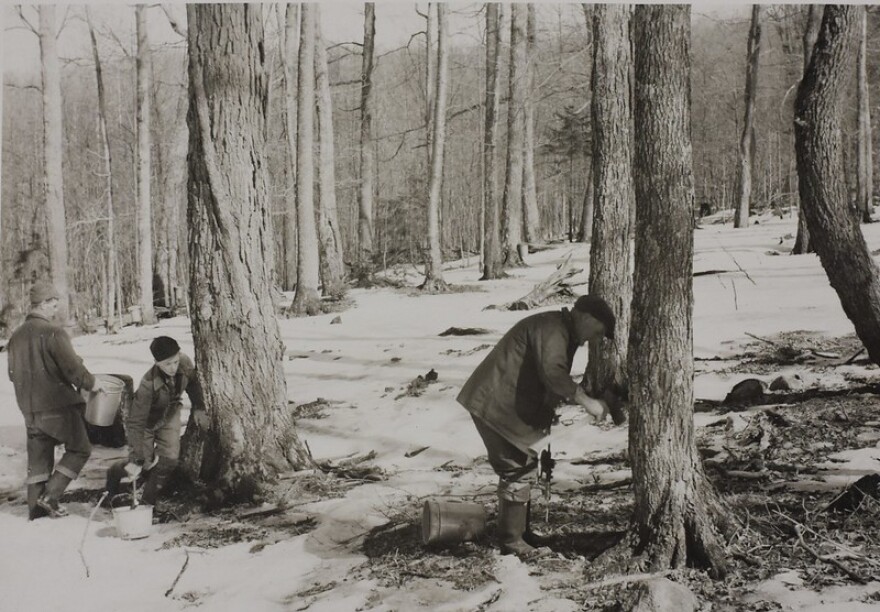The sugaring season in Vermont has always been unpredictable, with variability from year to year and early season thaws.
But people would generally wait until further into the season to start tapping their trees, said Mark Isselhardt, a maple specialist with the University of Vermont Extension.
That’s no longer the case, as the sugaring season appears to be starting and ending earlier, and lasting for fewer days than it has historically.
“Not knowing what the weather is coming down the road, most sugar makers are going to want to make what they can, because you just don't know,” Isselhardt said.

There are many decisions that go into when to start tapping, including the scale of an operation and the microclimate of a particular sugarbush, depending on its slope and the direction it faces. But during warm spells like this one, some producers might decide to tap their trees and collect sap if they can.
That’s if they’re not busy contending with another variable, like damage from a major windstorm last month.
“We've got folks who are still out in the woods cleaning up trees on lines,” said Allison Hope, the executive director at the Vermont Maple Sugar Makers Association.
“So it doesn't make sense to tap the trees. It would be like putting new siding on while your roof has holes in it,” Hope said.
Despite the uncertainty sugar makers face in a changing climate, the industry has grown substantially in recent years, as it shifts to larger-scale production.
“We’re producing about four times the amount of maple that we were just 25 years ago,” Isselhardt said. “That kind of growth you don't often see because it’s happening in the woods.”
Have questions, comments or tips? Send us a message.




